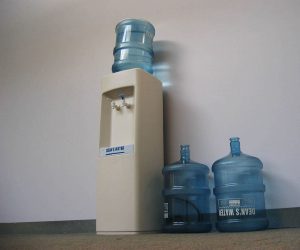Whether you are talking about love relationships or business relationships, first impressions mean a lot. When searching for a job, your cover letter, or lack thereof, is your first impression to a prospective employer. A well-written cover letter can be your means of securing an interview because it covers a more personal presentation than your resume and it gives a prospective boss personal insight into your character. Writing a terrific cover letter can be your key to a new job and a better career.
Elements of an Effective Letter
There are three types of resume cover letters- application, prospecting, and networking. If you are applying for a known opening, you use the application focused letter. If you are hoping to learn about a job or hoping to connect with the employer to ultimately gain employment, use a prospecting or networking specific letter.
Never forget, regardless of the type of cover letter, that a cover letter is not a regurgitation of your resume. It should contain information of interest to the employer so that the crucial question “why should I (or anyone else) hire you?” is answered. The letter should be limited to about one page and consist of at least three well-organized paragraphs.
The opening paragraph to your cover letter should serve as your introduction. Mention why you are writing, the position you are interested in and the items contained in your application package.
Your second paragraph should mention your experience, education and related information. It is not heavily detailed but can include volunteer work or personal experience if applicable to the job sought. You want to show that this job is a crucial step along your career path.
Your third paragraph should include skills, such as leadership, organizational or multi-tasking skills. This is your opportunity to communicate your uniqueness from other potential applicants. This is your time to offer concise examples to validate your talents. Include awards or special recognition for specific skills or projects.
Your closing paragraph should thank the employer for their time and their attention to your letter. Restate your interest and include updated contact information.
Presentation: Format, Font and Paper
A cover letter is a serious communication. So, the proper conventions for letter writing should be considered. Never send a cover letter written as if to a friend or in memorandum format. The business format is proper. Also, be particular about your fonts. Comic sans, Broadway, and Tempus sans do not convey professionalism, while Times Roman, Cambria, and Bookman Old Style do.
When you submit a cover letter, be sure to use nice quality bond paper. Match the cover letter with the same paper you use for your resume. Quality shows if your letter and resume appear to be a matched set. In addition to quality, make sure the color of the paper conveys class and professionalism. Light colors such as white, off-whites, creams, very light grays, and very light blues are the marks of a professional while yellows, goldenrods, purples, and reds scream amateur.
Know Your Audience and Know Yourself
For your cover letter to be effective, it must also be personalized. If it appears to be a form letter, an employer will lose interest quick. Your cover letter should be directed to a specific individual. If the Human Resource Manager is collecting applications and resumes, direct your letter specifically to them. Make sure names are properly spelled and addresses are accurate. When in doubt, check the website or call the company for the correct information.
Also, know the company to which you are applying. Research their information and trends. If the company is seeking value-adding members, know what that means and explain how you can be a “value-adding” member to the potential employer.
In your cover letter, your comments about yourself should be genuine and honest. If you sound too good, then your letter will not be credible, but don’t sell yourself short. If you are a great motivator, include this but don’t use absolute words such as “always”, “never” and “greatest.”
Lines and Typos and Grammar – Oh My
Cover letters are an indirect writing sample to a prospective employer. Writing a strong cover letter communicates to the prospective employer that you can convey your thoughts on paper. However, letters using colloquialisms, slang, acronyms, and poor grammar can torpedo your prospects with a company.
Check your formatting to make sure paragraphs are lined properly. Make sure your fonts are consistent. Run grammar and spell checks as well as complete manual checks on your words and sentences. By doing these things and producing an error-free letter, you are showing a potential employer that you pay attention to details and are a proficient writer.
Samples and Sources
Writing a job cover letter is not as easy as it seems and many job seekers need help in drafting an effective missive. For those who don’t have English Majors or Human Resource Managers in the family, here are some tips for finding great cover letter examples. While an internet search can offer some examples, letter writing software and books can be used as well. Refer to resources such as Joyce Lain Kennedy’s Cover Letter Writing for Dummies, Louise Kursmark’s Cover Letter Magic or David F. Noble’s Gallery of Best Cover Letters: Collection of Quality Cover Letters by Professional Resume Writers for additional guidance.
Cover letters are a great way to add a more personal and professional polish to your applications for jobs or your search for new opportunities. While not everyone is great at writing letters, every job seeker can improve their chances for success with a terrific cover letter.



